Discover When to Stop Feeding Hummingbirds and Take Down Your Feeders
The timing of when you should take down your hummingbird feeders seems always to be a guessing game. The most obvious sign is the absence of hummingbirds altogether. When you no longer see hummingbirds at your feeders, they likely have left the area until next spring. Unlike other birds that hang around year-round to enjoy your generous food offerings, hummingbirds rely on different natural factors to aid in their migration schedules. Discover when you should stop feeding hummingbirds and take down your feeders by looking at various factors. Those factors include feeding pattern changes, your local climate conditions, and any alternate food sources that may be available in your area.
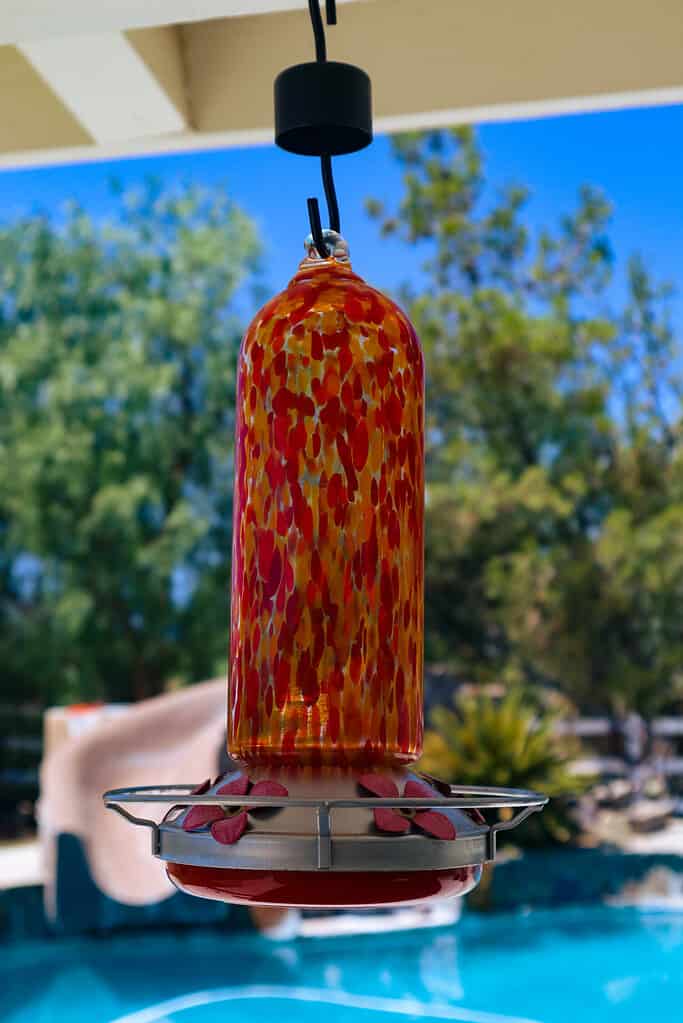
©Alejandro Rossi/Shutterstock.com
Align Hummingbird Feeder Removal With Feeding Habits, Local Climate Conditions, and Migration Patterns
Noticeable changes in a hummingbird’s feeding pattern can be caused by climate changes that signal the beginning of migration. Their migration patterns are the repetitive, predictable actions of leaving areas that experience cooler fall and winter temperatures to settle into areas of warmer climates. You will subsequently see fewer hummingbirds and find that you won’t have to fill your feeders as often. Ultimately, the onset of more sustained, cooler temperatures in your region provides guidance as to when you should stop feeding your hummingbirds and take down your feeders.
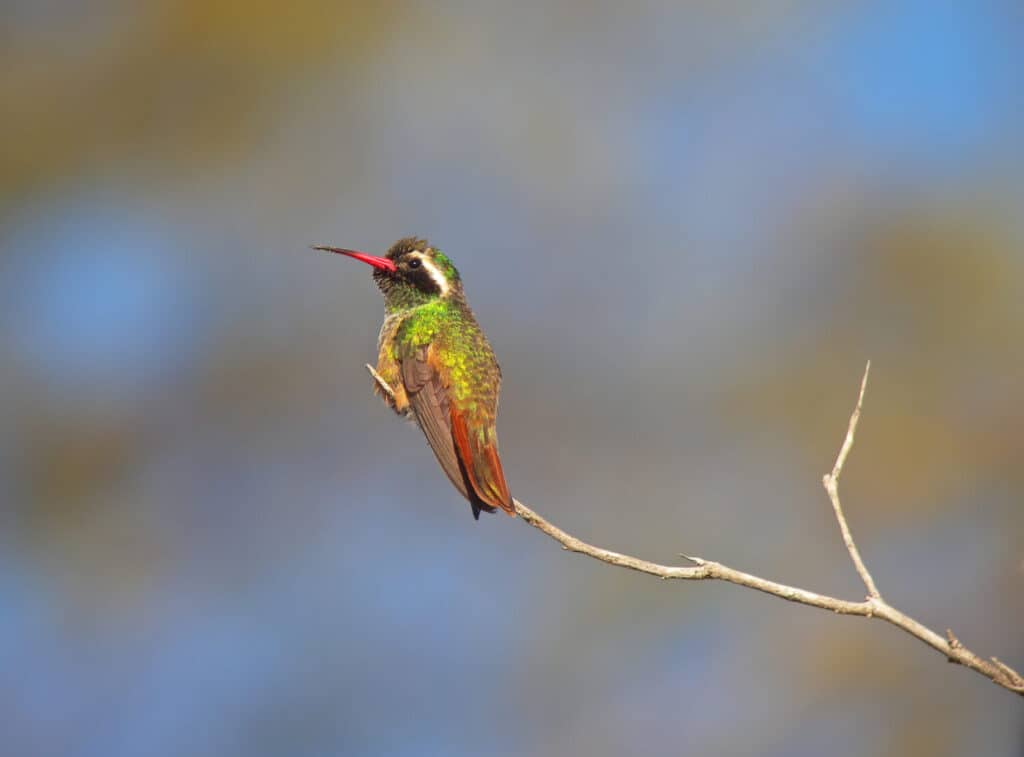
©Agami Photo Agency/Shutterstock.com
Be Mindful of Naturally Available Food Sources Before Removing Hummingbird Feeders
It is expected and natural that a hummingbird’s normal migration pattern starts to take hold as their natural food sources diminish. You may want to keep the feeder up a little longer if you are still seeing hummingbirds, but the natural food sources are severely limited. This will give them time to get nutrition before their annual migration. If migration is already occurring and natural food sources are plentiful, you can start to lessen the availability of your feeders, knowing that they will still get their needed nutrition from the preferred natural sources.
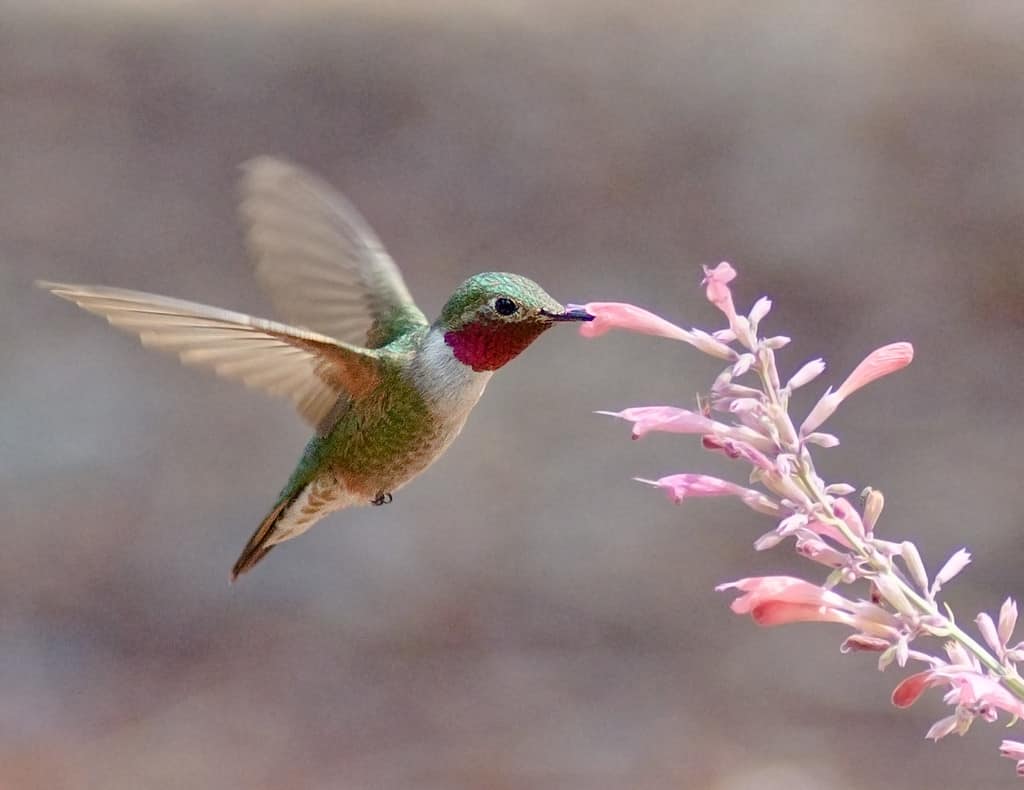
©M-C-C/iStock via Getty Images
Hummingbird’s Natural Food Sources
We all know that hummingbirds love nectar, and that source is generally readily available outdoors. However, recent studies show that hummingbirds are protein lovers who get their protein from eating insects as well. Almost 80% of hummingbird species are avid hunters, getting protein from insects like gnats, mosquitos, aphids, spiders, and flies. With a wing speed of 80 times per minute, hummingbirds are some of the best aerial hunters in the sky.
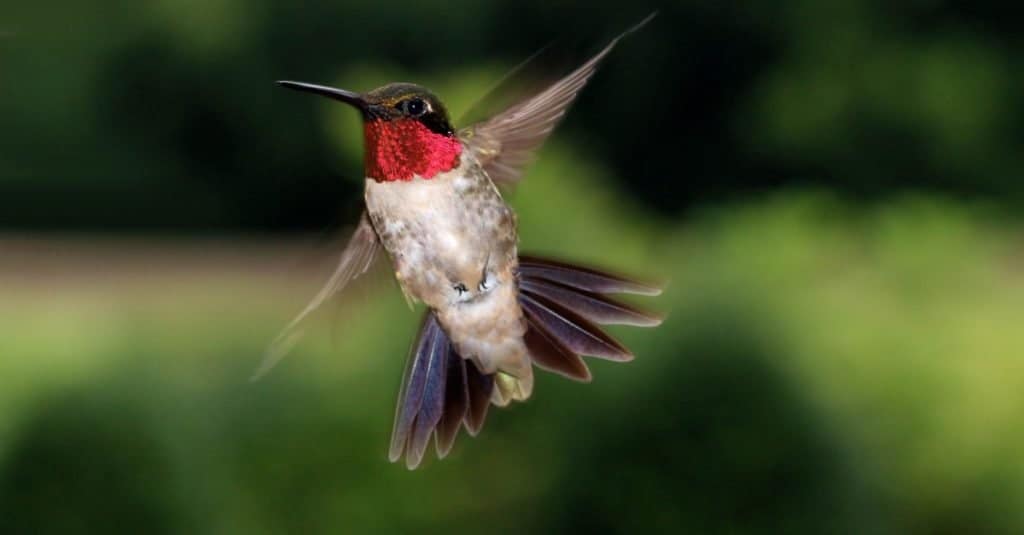
©Ramona Edwards/Shutterstock.com
How to Keep, Clean, and Store Your Hummingbird Feeders
Hummingbirds are attracted to your feeders because they are in a healthy environment with accompanying nearby natural food sources. To keep the hummingbirds coming back year after year, it’s essential to maintain your feeders and make your yard an environment that provides them optimal health, safety, and well-being. In order to do that, maintain the areas around your feeder, discouraging the spread of disease from discarded food that may bring in unwanted pests or insects. Hummingbird feeders also need a thorough cleaning to lessen the possibility of mold or bacteria growth.
- Wash the hummingbird feeder. Remove any unused nectar from your feeder and disassemble it as much as possible. Using warm water and a mild detergent or dish soap, thoroughly scrub the individual parts. Use a bottle brush, old toothbrush, or similar tool to remove nektar residue from all of the small crevices. Clean and scrub all parts, including perches, nektar ports, and reservoirs.
- Soak and rinse the feeder. Soak all feeder parts, using a solution of one part vinegar to four parts water, for at least an hour. A vinegar and water soak removes any lingering mold or fungus growth. A final thorough rinse with clean, hot water follows. Allow the feeders to air dry completely before moving them to storage.
- Store your feeders. The optimal storage place for bird feeders is in a cool, dry place, away from extreme temperature swings or the possibility of insect contact. A sealed bag or tote-type container to protect them is a great solution. If your feeders are made of fragile materials, wrap them in newspaper, bubble wrap, or tissue for further safety precautions.
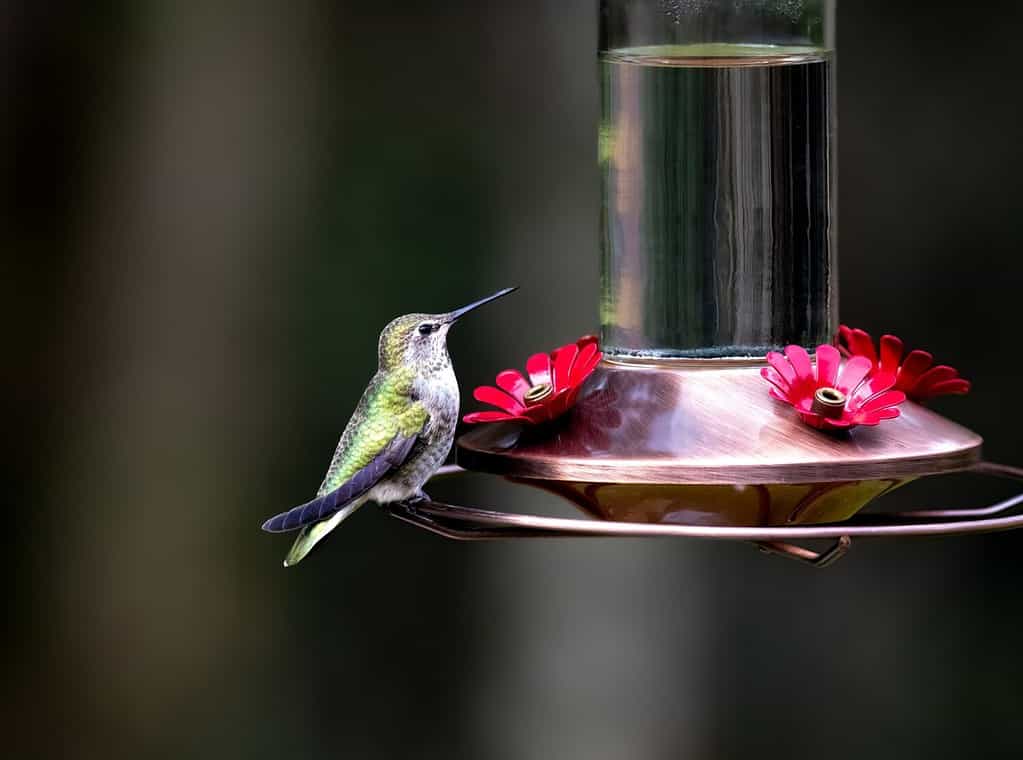
©Jeff Westhead/Shutterstock.com
Discovering when to stop feeding your hummingbirds and take down the feeders is based on your unique observations. Observations of climate changes, available natural food sources, and the frequency of hummingbird sightings all factor into the optimal time to remove and store your hummingbird feeders until next spring.









